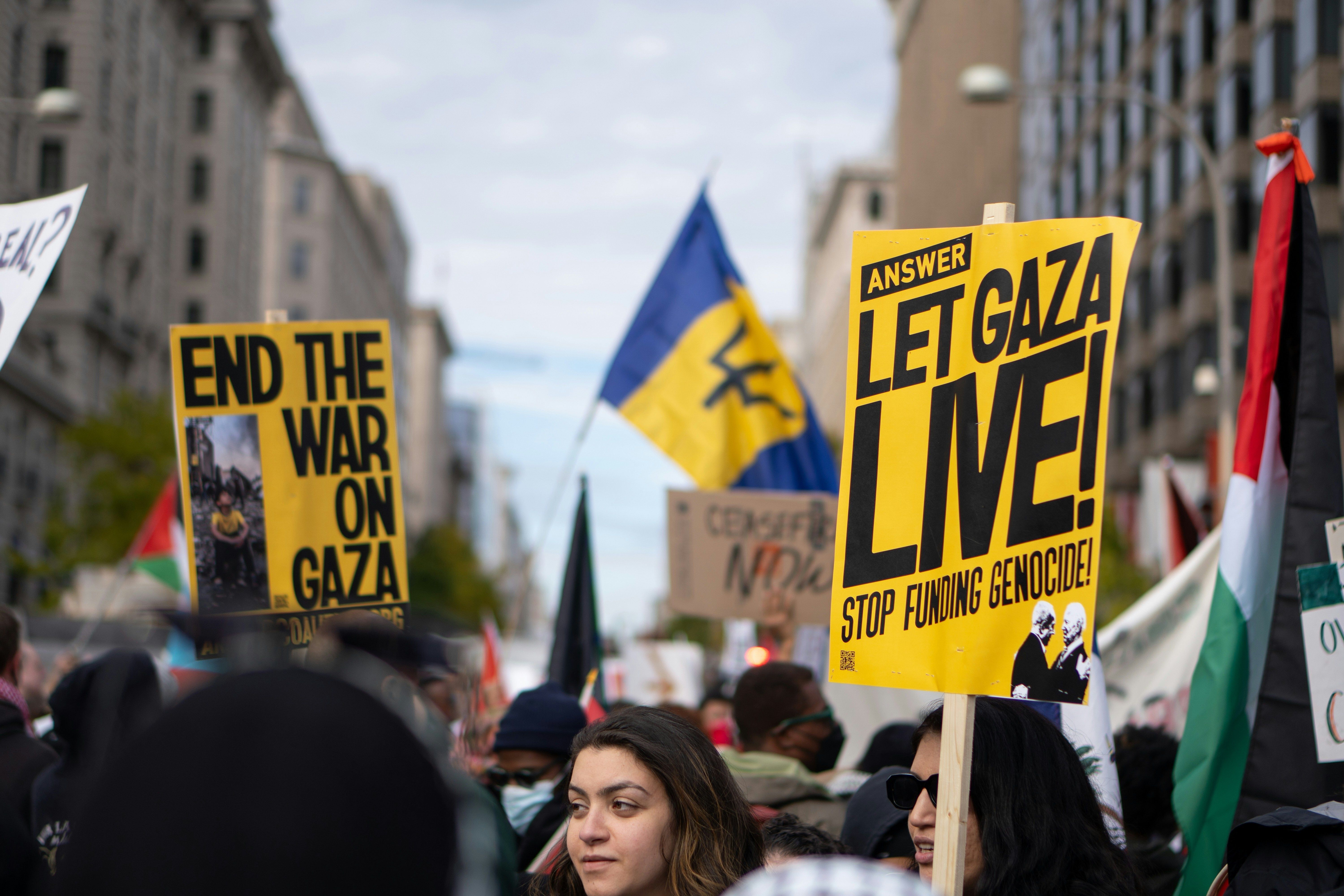
This spring, college campuses across the U.S. have transformed into frontlines of protest. From Columbia to UCLA, students are mobilizing for a ceasefire in Gaza and demanding that their universities divest from companies linked to the Israeli military. Encampments, walkouts, and teach-ins are sweeping across the country, and Gen Z is leading the charge!
But this movement isn’t just about solidarity. It’s also igniting a national dialogue around student speech, protest rights, and the role of universities in political protests.
A Movement Under Fire
What began as a peaceful protest has been met with mass arrests, police force, and threats of suspension or expulsion. More than 2,000 students across the U.S. have been arrested since April. Administrators sometimes called in law enforcement within hours of students setting up tents, escalating rather than engaging.
At the same time, lawmakers are calling for harsher crackdowns, even accusing students of terrorism or antisemitism. And yet, students from all backgrounds, including Jewish, Palestinian, Muslim, and Black communities, continue to organize (often together) under shared demands for human rights, accountability, and free expression.
The Legal Landscape Is Shifting
The legal battle over campus protest rights is intensifying. Civil liberties groups have filed lawsuits, and the U.S. Supreme Court is expected to weigh in soon on cases that could redefine how First Amendment rights apply on college grounds.
The question now is whether students can protest and whether dissent will be criminalized.
Why Gen Z’s Voice Matters
This generation has grown up amid global unrest, climate disaster, and political polarization - but instead of disengaging, Gen Z is getting organized. Whether calling for a ceasefire or defending protest rights, Gen Z demonstrates a deep understanding of justice and an unwillingness to be silenced!
What You Can Do
If you're a student or young person watching this unfold, here are ways to act with purpose:
- Know Your Rights: Learn the difference between campus rules and constitutional rights, especially at a public university. Groups like the ACLU and FIRE offer practical guides.
- Support Protesters: Even if you're not on the ground, you can amplify messages, donate to bail funds, or join letter-writing campaigns to university administrators and elected officials.
- Stay Grounded in Values: Advocacy isn’t about viral moments, it’s about sustained pressure, coalition-building, and accountability. Stay informed, listen to affected communities, and lead with integrity.
- Build Coalitions: Across the country, students of diverse faiths and identities are coming together in unprecedented ways. This is a moment to learn, build trust, and stand in solidarity.
This Is a Defining Moment
Gen Z is not just reacting to the world, it’s reshaping it. Whether in courtrooms or quads, the movement for justice in Gaza and for student speech in America is part of a broader fight: one for dignity, voice, and a future shaped by the people who will inherit it.
History is watching, and Gen Z is showing up.

